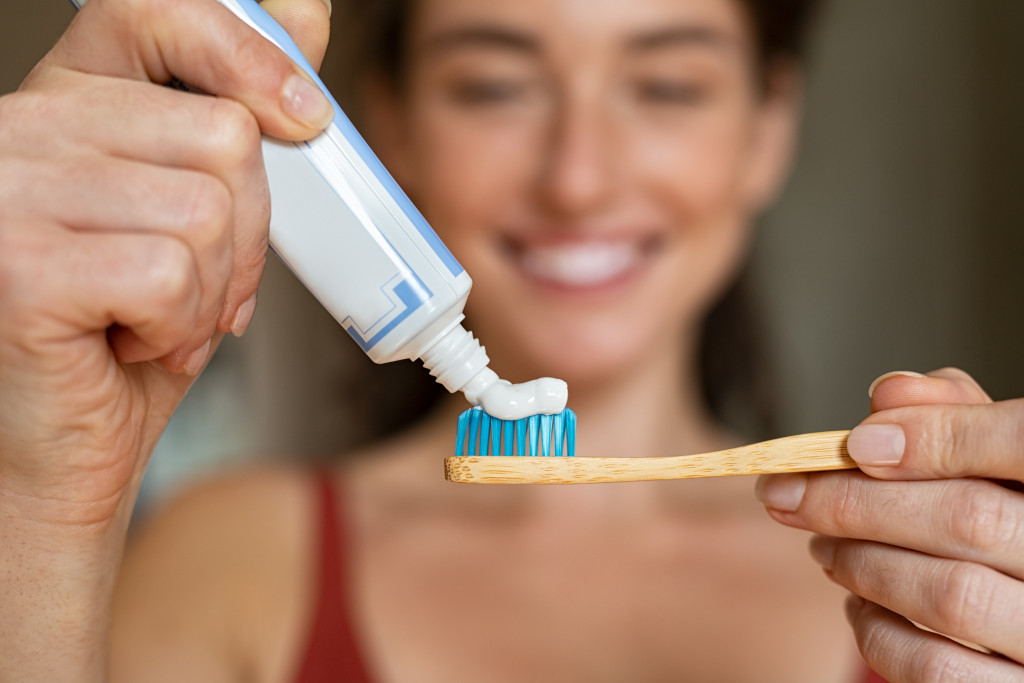- Learn the basic principles of good dental hygiene to keep your mouth healthy
- Schedule regular visits to the dentist for check-ups.
- Improve diet and eating habits by reducing sugary and starchy foods and eating plenty of fruits and veggies.
- You can enjoy all the benefits of a healthy mouth with commitment and dedication.
Good oral hygiene is vital for overall health and well-being. It helps prevent bad breath, tooth decay, and gum disease, which can significantly impact your quality of life. But how do you ensure that your oral wellness is up to par? This comprehensive guide will provide everything you need to know to maintain a healthy mouth.
Practice Basic Oral Hygiene
The most important aspect of oral wellness is, by far, basic oral hygiene. Although it may seem like a no-brainer, these habits can significantly impact the health of your teeth and gums. To practice good oral hygiene, you can do the following:
Brush Your Teeth
The most fundamental aspect of good oral hygiene is brushing your teeth at least twice daily with fluoride toothpaste. Brushing removes plaque and bacteria from the surface of the teeth, preventing cavities and gum disease. To get the best results from brushing, hold your toothbrush at a 45-degree angle against your gums and use short strokes when cleaning each section of your mouth. Spend two minutes brushing so that you cover all surfaces of each tooth.
Floss Once a Day
Flossing daily is essential for removing food particles stuck between the teeth and reducing the risk of periodontal (gum) disease. When flossing, gently slide the floss between each tooth using an up-and-down motion before curving it around each one in a ‘C’ shape. Remember to floss behind every last molar, as these areas are most prone to buildup and decay.
Use a Mouthwash
Using an antiseptic mouthwash each day can help reduce plaque, gingivitis, and bad breath. Choose a fluoride-based mouthwash specially formulated to protect your teeth from cavities and gum disease. This will help keep your mouth healthy and ensure the longevity of your teeth.
Visit the Dentist Regularly

Seeing a reliable dentist for regular check-ups is vital in maintaining oral health. These professionals can help detect any issues early and provide the care you need to prevent them from worsening.
During these appointments, your dentist will check for any signs of tooth decay or gum disease and suggest treatments or lifestyle changes to improve your oral health.
They may also advise on proper dental care techniques to ensure that you take the best care of your teeth.
You can find a qualified dentist by asking for recommendations or searching online. Depending on your needs, various types of dentists are available, such as general practitioners, specialists, and cosmetic dentists.
Finding a dentist you trust and feel comfortable visiting is crucial. This can make your dental appointments much more enjoyable, and you will be much more likely to keep up with your appointments.
Improve your Eating Habits & Diet
Your diet plays an essential role in maintaining good oral health as well. With that in mind, it is essential to keep the following tips when it comes to your diet:
Eat Plenty of Fruits & Vegetables
Fruits and vegetables are packed with important vitamins and minerals that can help keep your teeth healthy. Eating crunchy fruits and vegetables such as apples, carrots, and celery helps remove plaque from the teeth, while other produce, such as leafy greens and citrus fruits, contain high levels of vitamin C that can strengthen the gums. By investing in these foods, you can enjoy their nutritional benefits for your oral health.
Reduce Sugary & Starchy Foods
Sugary and starchy foods such as candy and white bread are highly detrimental to your teeth, as they cause plaque buildup. Try to reduce your intake of these foods and choose healthier alternatives when possible. This way, you can enjoy delicious snacks without compromising your oral health.

Drink Plenty of Water
Water is essential for overall health and can also do wonders for oral hygiene. In addition to keeping your mouth hydrated, it can help clear away food particles and bacteria, reducing the risk of tooth decay. Aim to get the best results and drink at least eight glasses of water daily. This will help freshen your breath and keep your teeth and gums healthy.
Achieving your ideal level of oral hygiene requires dedication and commitment. There are many ways to do so, but by following these steps, you can make sure that your smile is healthy for many years. So take the time to practice good oral hygiene, and you will surely enjoy all the benefits of a healthy mouth.


